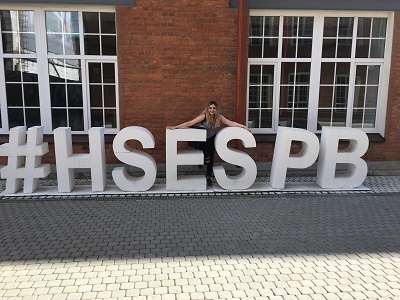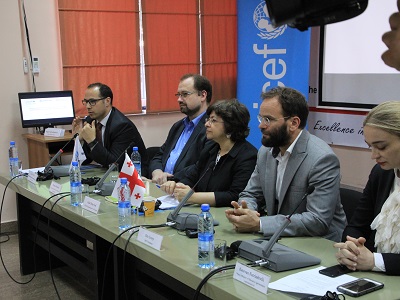- Details
ISET-PI researcher Laura Manukyan of the Social Policy Research Center is excited to share her experience gained through professional development programs over the summer. She participated in two international summer schools, entitled “Inequality of Educational Opportunities” and “BRICS Global Business and Innovations”, organized by the Higher School of Economics (HSE) in Moscow and St. Petersburg respectively. Both included lectures, practical sessions, as well as group projects.
The “Inequality of Educational Opportunities” summer school took place on July 2-7 in Moscow, and was focused on research into education inequality. Education specialists Barbara Schneider (from Michigan State University) and Ernesto Treviño Villarreal (from Pontifical Catholic University of Chile) thoroughly examined topics of inequality in individual learning achievement, variations in educational access across different income groups and communities, and ways to better address issues of social and educational inequality.
- Details
On June 15, representatives from the World Bank, UNICEF and ISET gathered to analyze challenges and achievements in Vocational Education and Training (VET) in Georgia, as a part of the Education Policy Forum. The event was opened by Ozan Sevimli (the World Bank Program Coordinator for the South Caucasus), Ms. Laila Omar Gad (UNICEF's Representative to Georgia), Eric Livny (President of ISET) and Ketevan Natriashvili (Deputy Minister of Education).
Mr. Sevimli argued that the economic competitiveness of the country is very much dependent on the skills and competences of its workforce, which come up as one of the key bottlenecks in economic growth and poverty elimination in Georgia. Furthermore, he claimed that these problems are very much dependent on the education system in the country. In particular, vocational training is a very crucial element enhancing economic productivity in the country, and Mr. Sevimli emphasized that there has been a lot of work done in the vocational education sector in terms of admission exams, and some involvement from the private sector. However, he noted that 'Georgia is not there yet' and highlighted two main problems: firstly, the private sector is far away from the exchange that needs to happen between skills and what is needed in the labor market. Secondly, vocational education does not enjoy a particularly positive reputation in Georgia; it is perceived as being for those unable to achieve in acadmia. For her part, Ms. Natriashvili acknowledged the problems mentioned by Mr. Sevimli.












